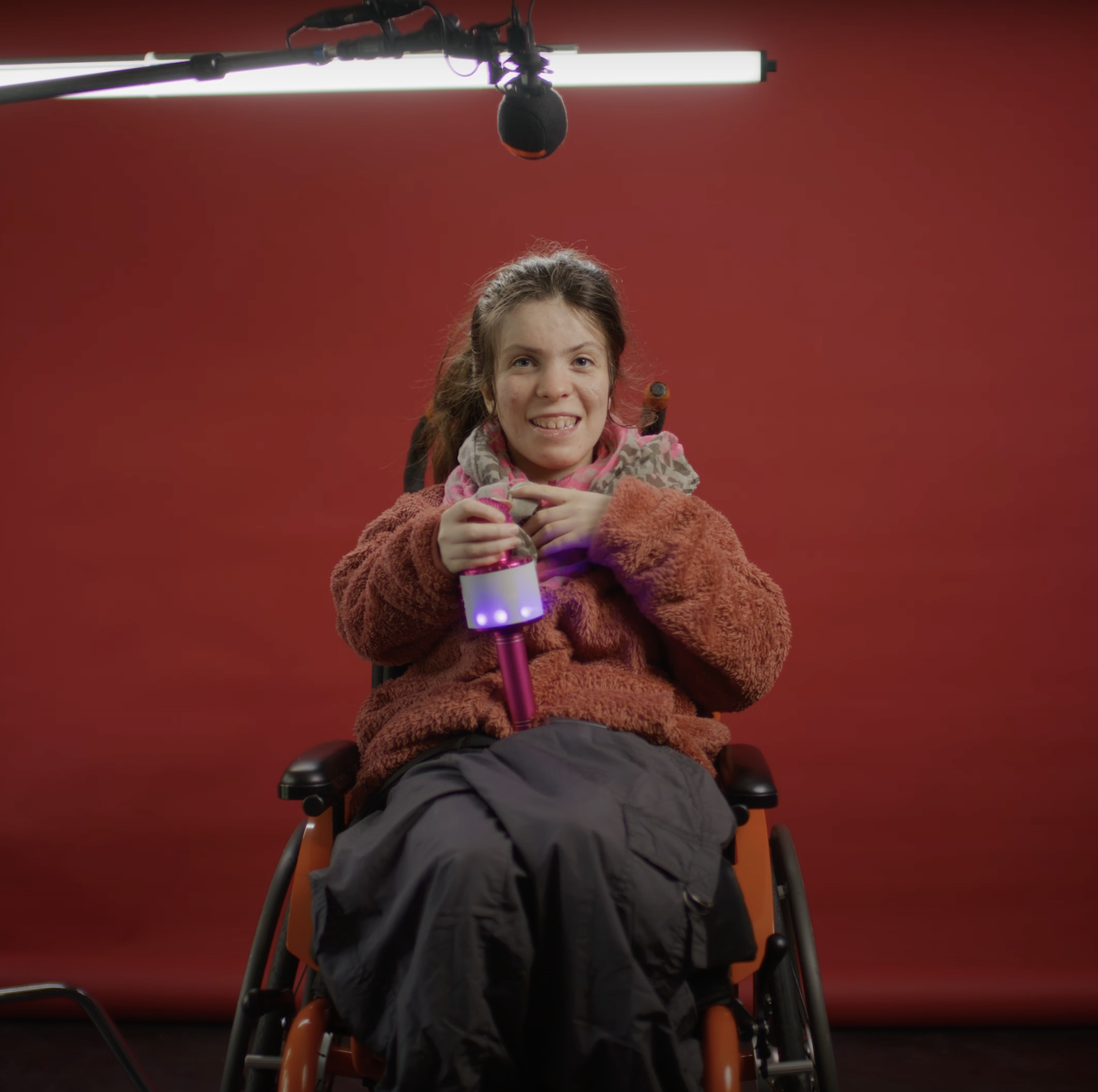How to interview disabled children and their families
Sam’s daughter Elvi being filmed for the We Can Learn campaign film
By SAM CARLISLE
“Can we have a family with a disabled child for tomorrow?”
As a PR company that specialises in working with charities we are asked for interviewees all the time, some requests are more blunt than others.
We pride ourselves in matching the right journalists with the right people sharing their stories. Ultimately, it’s why we set up Cause Communications.
But with that comes a duty of care to the families we put forward and particularly the children. What will be the impact of telling their story? Is it OK to describe a young person’s health issues to a nationwide audience? How will the interview process work with a disabled or neurodivergent child?
We enjoy working with journalists who have an understanding of disability or neurodiversity. But that only comes with experience, so for those production crews and writers new to this, here are some tips.
Allow for reasonable adjustments: Ask the young person or their parents what adjustments you might need to make. Do they have a shorter concentration span than their age group peers? Is noise an issue? Will a bright flash from a camera scare them? If they have a physical disability what is the most comfortable way to be photographed? Our friend Isaac Harvey, a filmmaker and wheelchair user, has been interviewed a lot. He says: “Ask if someone will need break times, I can’t sit for long periods of time so if filming takes longer it can begin to become painful.”
Be punctual and be realistic about how much time you will take: All journalists are jumping between stories and might have to shuffle things around on any given day but try to prioritise these interviewees. It can take longer for disabled people to travel. Allow for that if you are meeting someone away from their home or if they’re coming to a studio. Keep in mind that families with disabled children can’t be as flexible as others because it can take a long time to get a disabled child washed and dressed. Routine is incredibly important for many autistic children and those with complex needs, if you are late it might confuse or upset them getting your interview off to a bad start. If you need to cancel, be sensitive and explain why. Isaac says: “Journalists always say it shouldn’t take too long but it would be good to have a realistic time. I know from making films it always takes longer than they allow Be honest.”
Spell our how the interview will work for neurodivergent interviewees: Autism can mean many different things but one common characteristic is a need to know what to expect in a new situation. If you have time, give your interviewees an idea of what will happen when you are with them. For example: “I’ll arrive with a photographer called Caitlin, she will set up a camera and a big umbrella. That will take 15 minutes. I’ll have a conversation with you while she’s doing that.” If you are happy to, give people an idea of questions before you arrive. Interviewees with learning disabilities, for example, might want more time to consider their answers. Isaac is as sharp as a tack but says: “Physically it’s tough for me to sit up for long periods which makes me mentally tired, having questions in advance means I can answer better.”
Choose a location well: Try to interview someone at home or in a public place that they are familiar with, for example a park they visit regularly that they know is accessible and quiet. Noisy cafes can create a sensory overload in some children. If you are sending a car to pick someone up for a studio interview ask the interviewee or their family what transport they would choose. Isaac says: “I prefer to arrange my own transport and claim the cost back because not all “wheelchair accessible” vehicles can take my power chair.”
Talk to the person not their carer: The “does he take sugar?” approach is not a great way to start an interview. Say hi and make conversation with the young person when you meet them. I have a daughter with complex needs and it amazes me how many people don’t do this. If a child has a learning disability or is non-verbal, they might have just as much to say but might use other ways to communicate such as Makaton sign language or symbols. Don’t assume an individual’s mental capacity by how they communicate. Their parents will soon say if they are unable to communicate in any way. Remember not everyone defines themselves by their disability, it’s often just another part of them, like having dark hair or brown eyes. If you’re worried about offending someone with your use of language check Scope’s guide to “ending the awkward” website for terminology here: https://www.scope.org.uk/campaigns/end-the-awkward/#talking-about-disabilityhttps://www.scope.org.uk/campaigns/end-the-awkward/#talking-about-disability
Pay disabled people for their time: If you are interviewing a young adult as an expert rather than a case study for a charity, pay them. You are taking up their time and energy and using their knowledge for content they should be compensated for that.


